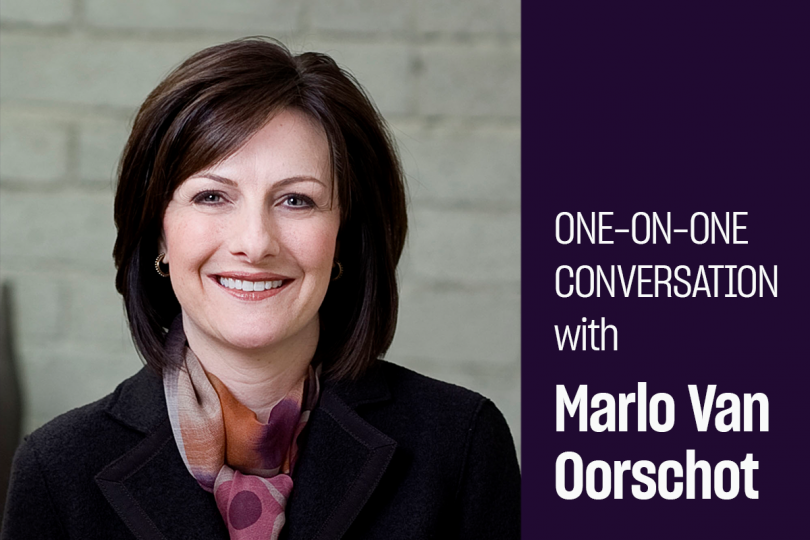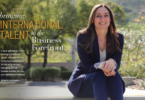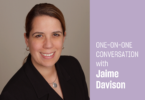Marlo Van Oorschot went from working at top law firms in L.A. to opening her own practice in 2001.
She has a very successful career as a family law attorney, been published in many publications, and even published a book on “grey divorce.” She has received many accolades, include her AV® Preeminent™ rating by Martindale-Hubble, nine years as a Super Lawyer (Los Angeles Magazine), seven years as a Top Rated Lawyer (L.A. Times), and seven years as a member of Top Women Attorneys in Southern California (Los Angeles Magazine).
Tell us a little about your practice, your practice areas, and typical clients.
For the entirety of my 26-year legal career, I have been practicing family law. As I grew as a lawyer and established my practice, I started focusing on who my typical client is. That client is a business owner, professional or executive who seeks a business-minded approach to their legal issues. My clients typically own a business or hold a business interest, complex real estate or other investment holdings. Many have complex compensation packages such a stock options, deferred compensation, and other executive benefits.
Our firm is a boutique family law practice. We are strategic litigators in a field where litigation is usually the worst path to resolution for a family. We are acutely aware of the destruction litigation can bring to a family, so we work with our clients on how best to approach the litigation. We are always prepared for the potential of litigation but work diligently to avoid it and work to find a path to an early and peaceful resolution. Our work involves property division, child and spousal support and child custody issues in a divorce; the custody and child support issues in a paternity case which involves unmarried parents; and, the work of modification of support and custody orders after a divorce or paternity case has concluded.
You are known as an expert in the area of “grey divorce.” What is grey divorce, and what makes it different or unique from other areas of family law and divorce?
“Grey divorce” is a divorce proceeding of individuals over the age of 50. I’ve become very sensitive to the unique financial, retirement and employment issues facing the older divorcing individual, and made a major professional commitment to educate this group about the complexities they face in divorce.
My book, How To Survive Grey Divorce, helps spouses understand and manage the difficulties surrounding divorce after age 50. The issues in these cases fit squarely in my wheelhouse of working on financially complex divorces and my commitment to employing strategy on our cases. People getting divorced late in life have a lot of lose, little time to financially recover as compared to their younger counterparts and do not want to spend their golden years in courtrooms.
What is happening in general in the area of family since Covid-19 hit?
Besides the chaos of court closures and the stress of families navigating the movement of children between homes, schooling their children in a new way and the financial strain many people have experienced during this time, the big shift in the practice area is how we work with our clients to get their issues resolved.
Typically, courts are thought of as a place where a judge—a stranger—will make decisions for a family. The courthouses were a hub where issues got resolved by having access to mediators, resources and a place to meet up to discuss a case knowing that if we could not resolve an issue, the judge was there to do so. This also created a feeling of a day of reckoning, so to speak, that usually brought compromise to the table out of the fear of what the stranger in the black robe would decide. This is all lost with COVID-19. The courthouse is no longer a place of gathering with social distancing enforced and strict rules of entry into the courthouse. The leverage of “going to court,” the opportunities of gathering and resolving the case “on the courthouse steps” is gone. For those cases where litigation is necessary, in-person litigation is few and far between; replaced with audio and video hearings and trials. There is much to say about video trials, but video trials for complex matters is not ideal and, in fact, increases risk for complex cases, which opens the opportunity to seek alternatives.
Marlo Van Oorschot, Attorney at Law
VAN OORSCHOT LAW GROUP, P.C.
www.mvolaw.com
mvo@mvolaw.com
(310) 820-3414, ext. 201









